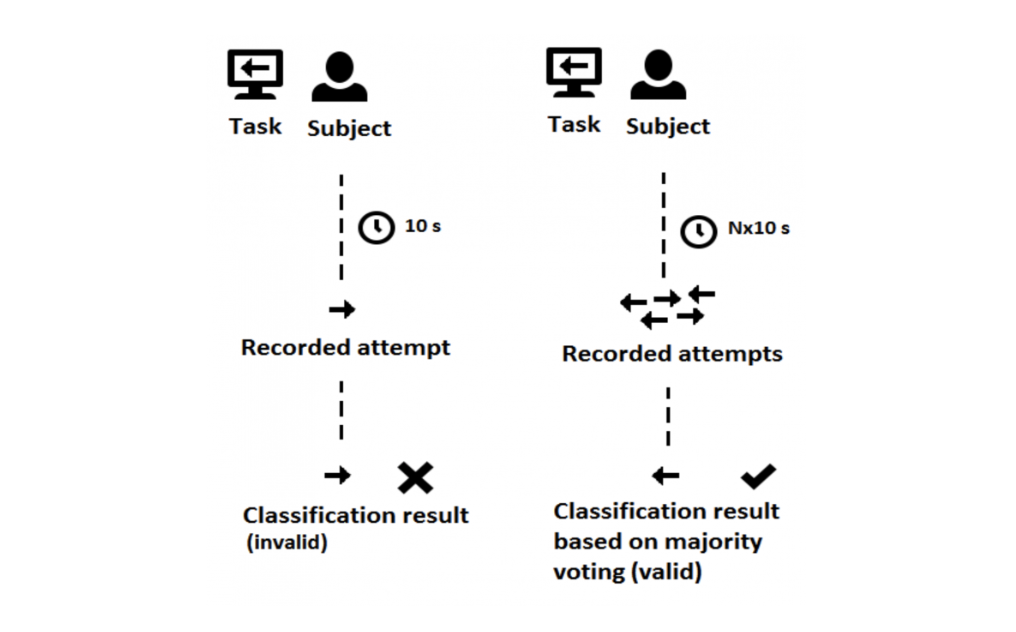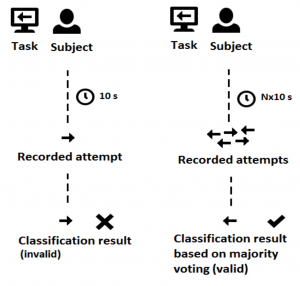
Thesis supervision | Jevgeni Savostkin: Towards Reliable Brain-Computer Interface: Achieving Perfect Accuracy by Sacrificing Time
Low reliability is a huge problem for BCI, since they will not be widely trusted and used while the prediction accuracy is low. The existing solutions usually try to improve the prediction accuracy of BCI without focusing too much on the time what is required for a single user’s concentration attempt. They apply different prediction models and signal processing techniques in order to raise the accuracy of prediction. Our solution goes the opposite way – it tries to discover how many concentration attempts should be done in a row (i.e how long does it take), to guarantee the prediction accuracy of 99%.
The solution described in the thesis is based on Condorcet’s jury theorem. It states that if we have two options and the chance to pick correct is larger than 50%, then, if we make several attempts in a row, the probability to pick the correct option by majority vote is rising with the number of attempts. In this work we apply the main Condorcet’s principle in a BCI perspective. First we develop a system that can reach the single concentration attempt’s prediction accuracy to be more than 50% and then we use multiple concentration attempts in a row to improve the overall accuracy. We expect that given enough attempts we can reach 99% classification accuracy. We compare the empirical results with the theoretical estimates and discuss them.
The BCI technology is a relatively young field. In order to fully integrate it into our ordinary life, the contribution from scientists and engineers is required for converting BCI to a reliable system. The following work contributes to reliability of BCI systems.

No comments yet.